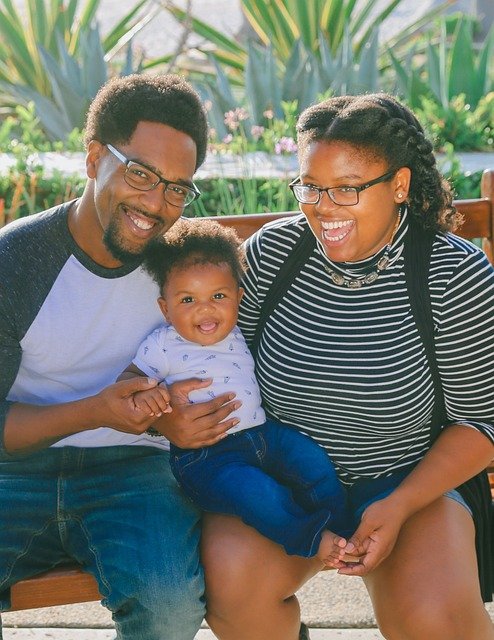History is important, warts and all. Attempts to correct historical records to include the contributions of marginalized people must be celebrated. Attempts to revise history to leave out our misdeeds or sanitize our actions must not be accepted.
We celebrate Black History Month, Women’s History Month, Indigenous Americans, Hispanic Americans, Asian Americans, and Pride Month because the contributions of these groups and their struggles have been mostly excluded from our history books.
Recent events warn us we are in for a fight if we care about historical accuracy.
During World War I, African American men were not allowed to become pilots or aerial observers (a member of an air crew responsible for reconnaissance). Eugene Bullard, an African American, joined the French air service during World War I because he was not allowed to serve in an American unit. Bullard served as a pilot in the 93 Spad Squadron of the Lafayette Flying Corps in the French Aéronautique Militaire. Bullard fought in World War I for three years as a military pilot with confirmed kills. He earned medals for valor, but his application to transfer to the United States Air Force was ignored after it was discovered that he was Black. During his lifetime, Eugene Bullard was awarded fifteen French war medals including the Knight of the Légion d’honneur. He is featured in a previous article in This Awful Awesome Life along with other African Americans trailblazers, https://www.thisawfulawesomelife.com/home/2018/2/10/recognizing-the-achievements-of-african-americans-by-fran-joyce?rq=Eugene%20Bullard
After World War I, African Americans advocated for over twenty years for the right to become military pilots. Prominent African American civil rights leaders such as Walter White (NAACP), labor leader A. Philip Randolph, and Judge William H. Hastie championed the cause. On April 3, 1939, Appropriations Bill Public Law 18 which contained an amendment proposed by Senator Harry H. Schwartz (a democrat from Wyoming) designating funds to train African American pilots passed. The War Department paid the appropriated funds to civilian flight schools willing to train African Americans to be pilots.
The War Department segregated African Americans into military units commanded by white officers. In 1940, there were only 124 African American pilots in the U.S. because of extremely restrictive guidelines imposed by the U.S. Air Corps. However, there were an abundant number of qualified candidates who had completed the Civilian Pilot Training Program at Tuskegee University which began in 1938. The War Department then added strict requirements for experience and higher education.
Ironically, the War Department’s efforts to keep Blacks from qualifying to become pilots created a unit of elite Black pilots who were in many cases better qualified than their white counterparts.
On 22 March 1941, the 99th Pursuit Squadron was formed at Chanute Field in Rantoul, Illinois without pilots. Captain Harold R. Maddux, a white officer, was given command of the squadron and fourteen black non-commissioned officers from the 24th and 25th regiments arrived to get ready for the trainees. Two hundred-seventy-one recruits arrived for training.
Five black youths were admitted to the Officers Training School (OTS) at Chanute Field as aviation cadets, Elmer D. Jones, Dudley Stevenson, and James Johnson of Washington, DC; Nelson Brooks of Illinois, and William R. Thompson of Pittsburgh, PA successfully completed OTS. These men were commissioned as the first Black Army Air Corps Officers.
In June 1941, the 99th Squadron was transferred to Tuskegee Alabama.
First Lady Eleanor Roosevelt gave the program a boost when she reviewed the Tuskegee unit and flew with African American chief civilian instructor C. Alfred “Chief” Anderson. After her half-hour flight, Mrs. Roosevelt praised Anderson’s abilities.
During World War II, The Tuskegee Airmen formed the 332nd Fighter Group and the 477th Bombardment Group. The Tuskegee Airmen were a group of predominately African American fighter and bomber pilots in the United States Army Air Force. These two groups included instructors, navigators, bombardiers, mechanics, crew chiefs, nurses, cooks, and other support personnel.
The Tuskegee airmen, nicknamed the Red Tails and the Red-Tail Angels because of the distinctive red markings on their aircraft, protected American bombers from enemy fighters. The group was awarded three Distinguished Unit Citations from 1940-1948.
The Tuskegee Airman were subject to Jim Crow Laws in Alabama in addition to the Army’s policy of segregation. Despite their qualifications, Black officers remained in non-leadership roles. White officers continued to be in charge of the 99th Squadron because a significant number of white servicemembers worked in various capacities at the field. According to orders from General Henry “Hap” Arnold, “Negro pilots cannot be used in our present Air Corps units since this would result in Negro officers serving over white enlisted men creating an impossible social situation."
Despite these ridiculous limitations, African American pilots persevered and distinguished themselves and their units by their heroism and bravery.
Many state governments are attempting to remove books from school libraries and public libraries about African Americans, women, LGBTQIA+, Latinx, and Asians. Among the many reasons/excuses given are that reading about prior acts of cruelty and discrimination unfairly cause some children to feel guilty about the actions of others, especially their ancestors.
The truth is often ugly and hard to accept. Contrary to the opinions of many of our leaders, these books weren’t written to create a sense of victimization or victimhood. The reasons certain people and the books about them are important is they teach us about actual history, so we can learn never to repeat the mistakes of the past. Learning about their struggles can also help us deal with our own challenges.
Harriet Tubman, Frederick Douglass, Cady Stanton, Anne Frank, Yuri Kochiyama, Martin Luther King, Jr., Malcolm X, John Lewis, Cesar Chavez, Mahatma Gandhi, Elie Wiesel, Harvey Milk, Nelson Mandela, Maya Angelou, Malala, and Amanda Gorman all have stories to tell us, but only if we preserve and protect their rights to tell us, and our rights and responsibility to listen and learn.











